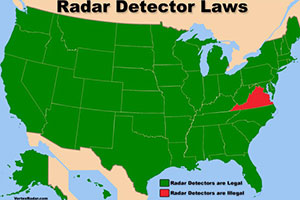Are Tasers illegal in the U.S?
Q&A | by
In the patchwork quilt of U.S. law, the question of whether Tasers are legal is not a straightforward one. This article, steeped in a conversational tone yet grounded in legal analysis, aims to unravel the complexities surrounding the legality of Tasers across the United States. As we navigate through this exploration, we’ll uncover the nuances of state laws, the importance of understanding local regulations, and practical advice for law-abiding citizens.
Understanding Tasers
First off, let’s clarify what we mean by “Tasers.” A Taser is a brand of conducted electrical weapons (CEWs) used by law enforcement agencies and available to civilians for self-defense. Unlike stun guns, which require direct contact, Tasers can be deployed from a distance, making them a preferred non-lethal self-defense tool.
The Legal Landscape
The legality of Tasers hinges on a myriad of state and local laws, with regulations varying significantly across jurisdictions. Here’s where the waters get murky: some states embrace their use by civilians with open arms, others envelop them in a thicket of restrictions, and a few outright ban them.
State-by-State Variance
The legality of Tasers varies significantly across the United States, with most states allowing them with certain restrictions related to age, background checks, or carry permits. However, specific states, cities, or counties may have stricter regulations or outright bans. It’s crucial for individuals to check the most current laws in their jurisdiction, as legal landscapes can change.
Historically, a few states and cities have had more stringent laws regarding the civilian possession and use of Tasers and stun guns. These locations have included, but were not limited to:
- Hawaii: Tasers were considered firearms and were heavily regulated.
- Rhode Island: Had restrictions on the possession of stun guns and Tasers by civilians.
- New York: Previously had restrictions, but laws have been changing following court rulings.
- New Jersey: Similar to New York, it had restrictions that were revised after legal challenges.
- Massachusetts: Had strict laws, which have been subject to legal scrutiny and changes.
- Michigan: Allowed with restrictions, such as Taser training and a valid concealed pistol license.
In addition to state laws, some cities and counties within states that generally permit Tasers might have their own set of restrictions. For example, laws in cities like Chicago or Washington D.C. have evolved over time and may differ from statewide regulations.
Given the dynamic nature of legal interpretations and changes, particularly following the U.S. Supreme Court’s stance on the Second Amendment rights extending to all instruments that constitute bearable arms for self-defense (Caetano v. Massachusetts, 2016), it’s essential to consult current local and state laws or a legal expert for the most accurate and up-to-date information. This ensures compliance and understanding of one’s rights and responsibilities regarding Taser ownership and use.
Areas of Restriction
Delving into areas with stringent regulations, we find that the legality of Tasers can be influenced by factors such as the individual’s criminal history, the intention behind carrying the weapon, and the manner of its use. Misuse of a Taser, especially in committing a crime, can lead to serious legal repercussions, including charges of assault or aggravated battery.
Recent Legal Developments
The landscape of Taser legality is ever-evolving, with recent court rulings and legislative changes impacting their status in several states. These developments often stem from broader discussions on self-defense rights, non-lethal weapons, and law enforcement tactics, making it crucial for individuals to stay informed about the latest legal trends in their area.
Key Considerations for Civilians
For those considering a Taser for self-defense, here are some key points to ponder:
- Research Local Laws: Before purchasing or carrying a Taser, thoroughly research your state and local laws to ensure compliance. Legal databases, state government websites, and consultations with legal professionals can provide up-to-date information.
- Understand Use and Training: Proper use of a Taser involves more than just knowing how to fire it. Many manufacturers offer training programs or materials to educate users on safe and effective deployment. Understanding the ethical implications and legal responsibilities of using a Taser for self-defense is paramount.
- Stay Informed: Legal statutes and public opinion on Tasers are subject to change. Staying informed through credible news sources, legal blogs, and official state announcements can help you navigate the shifting legal terrain.
Conclusion
In the mosaic of U.S. laws, the question of Taser legality is emblematic of the broader challenges in harmonizing self-defense rights with public safety concerns. As we’ve seen, the answer varies widely across states, underscoring the importance of local legal knowledge and responsible ownership. Whether you’re a law enforcement professional, a self-defense advocate, or simply a curious citizen, understanding the legal framework surrounding Tasers is essential in making informed decisions and ensuring compliance with the law.
Remember, the essence of law is not to confound but to clarify. By demystifying the complexities of Taser legality, we empower individuals to navigate their rights and responsibilities with confidence and legal acumen.









